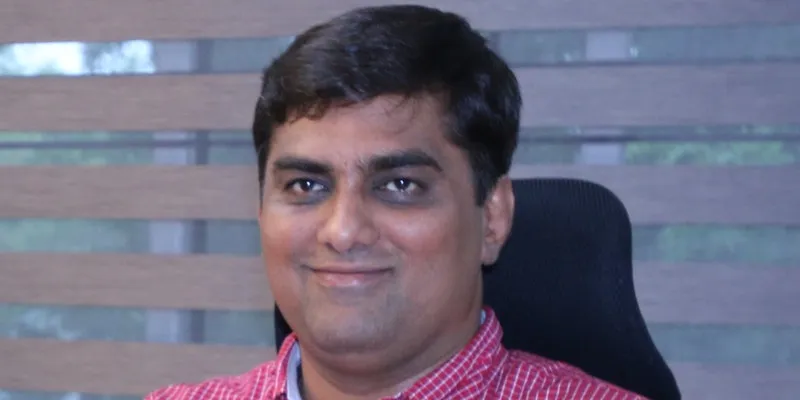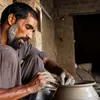From sustainable business models to gender-neutral shoes and hand-carved furniture, here are top 3 stories SMBStory covered this week
Understanding customers’ needs is one of the key ways to succeed in business. Here are the three Indian brands that follow unique business models to meet consumer demands.
With diverse business models, the Indian SME industry has come a long way. From creating a sustainable business model by generating renewable energy for its production, to manufacturing gender-neutral shoes, these Indian entrepreneurs are fulfilling the broad demands of society.
Here are the top 3 stories SMBStory covered this week:
Lavos Performance

Vijaya Raghavan, Founder and CEO, BS Apparels and Lavos Performance
The local demand for athleisure didn’t exist when Tirupur-based entrepreneur Vijaya Raghavan started textile and knitting company BS Apparels in 1994. He exported fabric and clothes to the US, where the demand for athleisure was growing.
Vijaya equipped his facility with solar panels and generators and windmills to produce 261 times the energy his business needed.
The BS Apparel factory has 180 kW rooftop solar panels that produce 20,000 units per month. As the energy infrastructure setup generates more power than required at the facility, the extra power is sold to the local electricity board, he explains.
Between 2004 and 2006, Vijaya created fabric made from bamboo and organic cotton for his athleisure exports, and it went on to become his USP. He started importing bamboo fibre from China and sourced organic cotton from different parts of India.
“I mixed the imported bamboo with Indian organic cotton at the fibre stage and spun it into yarn. We added some elastane and knitted it at the facility,” he says. But it wasn’t easy. The fibre was difficult to process, and it took Vijaya nearly two years to crack it.
The high cost of production, despite the advantages offered by the blend, was another challenge. Because of his high production costs and one-time investment in clean energy infrastructure, Vijaya knew it would take quite some time to break even.
Vijaya started seeing success with his export business. His knitting factory, which started with just one machine, was able to add 430 more to its setup.
“The business was growing well, and I thought of making something for the local market. Despite being comfortable and odour-free, the scope for athleisure using our bamboo-organic blend was not much,” he says.
And he didn’t need to look beyond innerwear. He saw the industry for innerwear was growing – evidenced by the entry of several large and international brands in the Indian market. Further, the organised market for innerwear was growing, and the share of the unorganised market was declining.
With a robust manufacturing setup and his unique blend of fabric, this presented Vijaya with a perfect opportunity to venture into the innerwear market.
Armed with his concept for comfortable innerwear, Vijaya started Lavos Performance in 2010.
Vijaya didn’t raise any funds. He diverted money from parent company BS Apparel to launch the Lavos brand. Lavos began utilising BS Apparel’s manufacturing infrastructure to make innerwear for Indian markets.
In its range for men, Lavos made boxer, stretch and sports briefs, vests, T shirts, and polos. Lavos started making innerwear for women to be worn during periods, during maternity, and while engaging in sport activities.
He says he sees 40 percent of demand coming from Tier I cities, and the rest from Tier II and III cities.
Lavos also started selling offline in physical stores. It is present in around 15 to 20 top retail stores in South Indian cities and in Mumbai. Lavos makes Rs 2 crore a year, he claims, adding that the brand is now breaking even.
Ethnic Kraft

Reema Sodhi and Rajan Sodhi, Co-founders, Ethnic Kraft
Rajan was working with Dunlop India Ltd. in 1992 in Rajasthan when he fell for the state’s ethnic craft. When all his friends were busy living their lives, he spent his last penny on collecting antiques, chandeliers, clocks, pocket watches, and artefacts from the havelis of Rajasthan.
What began as a hobby eventually turned into enter entrepreneurship. In 1992, in New Delhi, Rajan launched Ethnic Kraft to manufacture and export traditional Rajasthani furniture and let customers relish the lavish living of the maharajas of India.
“I was always into art and culture, and when I saw such beautiful work in Rajasthan, I couldn’t resist myself and started the business to take this beauty across the world,” Rajan tells SMBStory.
Ethnic Kraft is a company involved in the manufacture and export of exclusive hand-carved teakwood furniture to connect with the country's rich cultural heritage. Based out of New Delhi, Rajan started the company in collaboration with his wife Reena Sodhi, who is an interior designer.
Ethnic Kraft was started with a bootstrapped capital of Rs 5 lakh, and retail store in Greater Kailash II, New Delhi. The company now records an annual turnover of Rs 2.5 crore.
JVAM Shoes

Raoul Mehra, Founder, JVAM Shoes
We have all grown up seeing different variants in footwear for males and females. And our conventional choices too have become selective, based on our gender - sandals are for girls, shoes are for boys.
To break this stereotype, Raoul Mehra started JVAM shoes in 2017, a gender-neutral footwear brand. The company was launched under the parent company, Vanilla Moon, founded in 1989. In an interaction with SMBStory, Raoul says,
“I was working in the US and came back in 2016. I always wanted to create something that is not gender-specific. And, while I already had a family business that dealt in shoes, I took inspiration from the same to design something that can cater to the choice of everyone.”
JVAM is a loose play on “Japan Vanilla Moon”, a gender-neutral footwear brand that stands for inclusivity and the idea is to encourage people to come out of their comfort zones, allowing them to express themselves, however they want.
Raoul was always fascinated by the street style culture in Tokyo, and how forward the transition of fashion is. So, taking cues from blurring gender identities when it came to fashion, he decided to venture into the territory of making gender-neutral shoes. Also, because of the fact that these designs were easy enough to execute with minimalist styles, he decided to take the plunge with his idea.
The shoes are manufactured in the two units in Noida and Agra, following some unique construction techniques like - Sacchetto and Bologna constructions, that give the shoes their softness and comfort.
JVAM uses the highest quality of leather to make this line and is offering them in the market at prices between Rs 4,500 and Rs 10,000.









